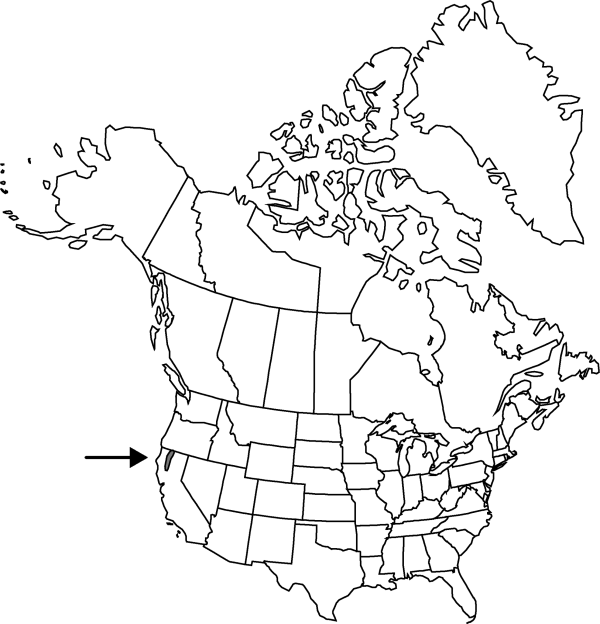Mirabilis greenei
Proc. Amer. Acad. Arts 12: 253. 1876.
Herbs, forming hemispheric clumps 6–8 dm diam., glabrous to sparsely puberulent. Stems 4–8 dm. Leaves spreading; petioles of proximal leaves 1–2.7 cm; blades of midstem leaves widely elliptic to ovate, 3–8-5 × 3–5.5 cm, base obtuse, often asymmetric, apex acute or acuminate. Involucres: peduncle 25–85 mm; involucres erect or ascending, 26–40 mm; bracts 5, 50% connate, apex acute to widely ovate. Flowers 6(–16) per involucre; perianth magenta, funnelform, 4–5 cm. Fruits light brown, with 5 blunt angles and 10 slender ribs visible when wet, widely obovoid to widely ellipsoid, 7–7.5 mm, tuberculate, glabrous or very sparsely puberulent, secreting mucilage most abundantly on ribs when wetted. 2n = 66.
Phenology: Flowering late spring.
Habitat: Gravelly slopes and flats, with juniper
Elevation: 400-1000 m
Discussion
Mirabilis greenei may have as many as sixteen flowers per involucral bract.
Selected References
None.
